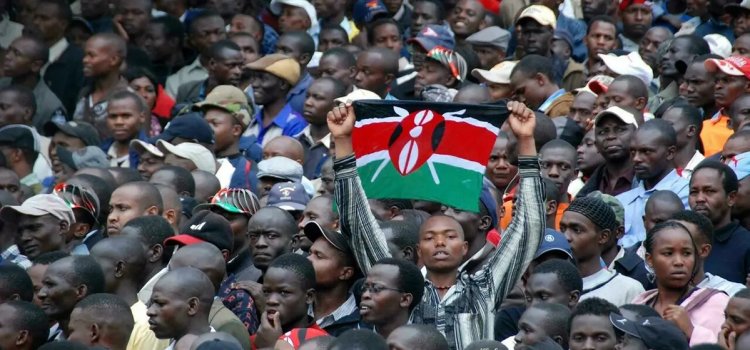Kenyan politics -multi-party system
Kenyan politics is a complex and dynamic subject that has undergone significant changes since the country gained independence from Britain in 1963. The political landscape is characterized by a multi-party system, with various political parties vying for power at different levels of government.

One of the most prominent political parties in Kenya is the Jubilee Party of Kenya (JP), which was formed in 2016 through a merger between several smaller parties. The JP is currently led by President Uhuru Kenyatta and has been in power since 2013. The party's main opposition is the National Super Alliance (NASA), which was formed in 2017 and is led by Raila Odinga.
Kenyan politics has been marked by numerous challenges, including corruption, ethnic tensions, and violence. Corruption has been a major issue in the country, with many politicians accused of embezzling public funds and engaging in other forms of corrupt practices. Ethnic tensions have also been a significant challenge, with different ethnic groups competing for power and resources.
The Kenyan constitution provides for a presidential system of government, with the president serving as both the head of state and head of government. The president is elected for a maximum of two five-year terms and appoints members of the cabinet.
In addition to the presidency, Kenya has a bicameral parliament consisting of the National Assembly (lower house) and Senate (upper house). Members of parliament are elected through a first-past-the-post system, with each constituency electing one representative to the National Assembly. The Senate consists of 47 members, with each county electing one senator.
Kenya also has a devolved system of government, with 47 counties each having their own elected governor and county assembly. This system was introduced through the 2010 constitution as part of efforts to promote greater decentralization and accountability.
In conclusion, Kenyan politics is characterized by a multi-party system, with various political parties vying for power at different levels of government. The country has a presidential system of government, a bicameral parliament, and a devolved system of government. However, the political landscape is also marked by numerous challenges, including corruption, ethnic tensions, and violence.
Top 3 Authoritative Reference Publications or Domain Names Used in Answering this Question:
1. The Constitution of Kenya
2. BBC News - Kenya
3. Al Jazeera - Kenya
Additional Sources













